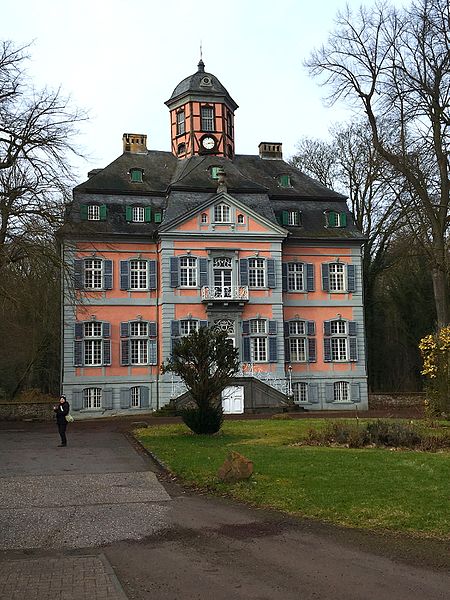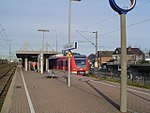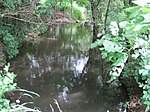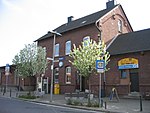Schloss Arff
AC with 0 elementsBuildings and structures demolished in the 1750sCastlesCologne

Schloss Arff is a former water castle in the locality of Roggendorf/Thenhoven which belongs to Cologne. It is located 20 km northwest of Cologne city centre and directly on the border with the city of Dormagen in the Rhine district of Neuss.
Excerpt from the Wikipedia article Schloss Arff (License: CC BY-SA 3.0, Authors, Images).Schloss Arff
Schloß-Arff-Straße, Cologne Roggendorf/Thenhoven (Chorweiler)
Geographical coordinates (GPS) Address Nearby Places Show on map
Geographical coordinates (GPS)
| Latitude | Longitude |
|---|---|
| N 51.051111111111 ° | E 6.8159722222222 ° |
Address
Schloß-Arff-Straße
50769 Cologne, Roggendorf/Thenhoven (Chorweiler)
North Rhine-Westphalia, Germany
Open on Google Maps











